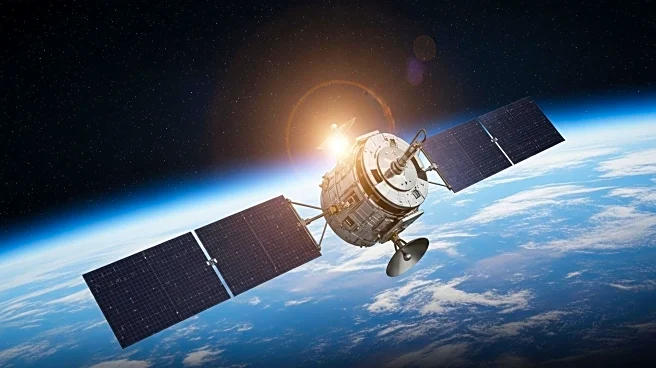What is the story about?
What's Happening?
A study conducted by researchers from UC San Diego and the University of Maryland has uncovered significant vulnerabilities in satellite communications. Using basic equipment, the team intercepted unencrypted data from various geostationary satellites, including private calls, text messages, and even military communications. The researchers utilized a $180 satellite dish and other affordable tools to access data from the T-Mobile cellular network, in-flight Wi-Fi, and utility infrastructure communications. Alarmingly, military and law enforcement communications were also accessible, revealing sensitive information about personnel and operations. The study highlights the lack of encryption in critical satellite communications, raising concerns about data security.
Why It's Important?
The findings of this study have profound implications for national security and privacy. The ability to intercept unencrypted communications poses a risk to military operations and personal privacy, as sensitive information can be accessed by unauthorized entities. This vulnerability could be exploited by malicious actors, leading to potential breaches in security and privacy. The study underscores the need for improved encryption protocols in satellite communications to protect sensitive data and maintain the integrity of critical infrastructure.
What's Next?
Following the study, the researchers have notified affected companies and agencies, prompting some to implement encryption measures. However, many entities continue to broadcast unprotected data, indicating a need for widespread reform in satellite communication security. The study may catalyze efforts to enhance encryption standards and encourage satellite communication providers to prioritize data protection. As awareness of these vulnerabilities grows, stakeholders in the telecommunications and defense sectors may push for regulatory changes to ensure secure communications.
Beyond the Headlines
The study raises ethical questions about the balance between research and privacy. While the researchers aimed to highlight security flaws, their work inadvertently exposed sensitive information, prompting discussions about the responsibilities of researchers in handling such data. The findings also suggest that intelligence agencies may have been exploiting these vulnerabilities, raising concerns about surveillance practices and the need for transparency in data handling.
















